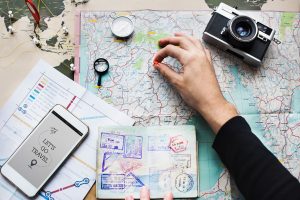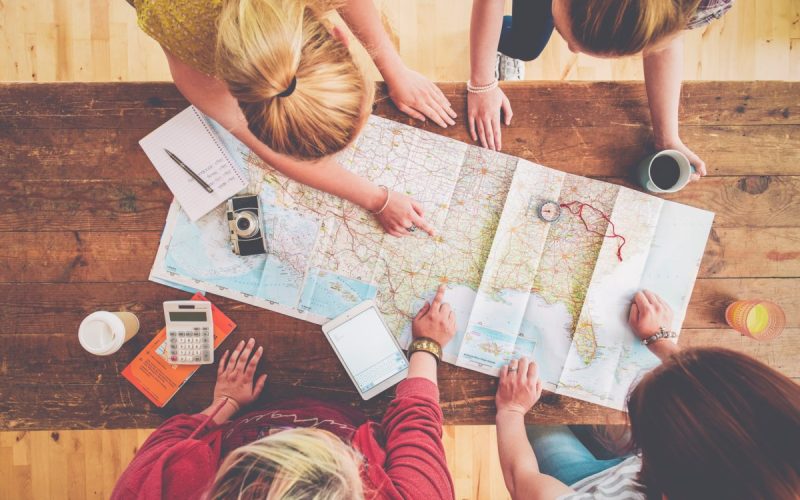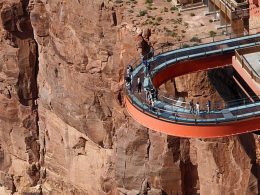Planning a budget-friendly adventure trip can be both exhilarating and daunting. The key lies in meticulous planning, strategic decision-making, and a bit of creativity. This comprehensive guide will walk you through the essential steps to ensure that your adventure is not only thrilling but also cost-effective.
Define Your Adventure
Before diving into the logistics, it’s crucial to define what “adventure” means to you. Whether it’s hiking through national parks, exploring remote islands, or engaging in extreme sports, having a clear vision will help streamline your planning process.

Research Destinations
Once you’ve defined your adventure, research potential destinations. Look for places that offer the activities you’re interested in at a lower cost. Consider off-the-beaten-path locations that might be less touristy but equally exciting.
Set a Budge
Determine how much you are willing to spend on your trip. Break down your budget into categories such as transportation, accommodation, food, activities, and miscellaneous expenses. This will give you a clearer picture of where you can save and where you might want to splurge a little.
Travel Off-Season
Traveling during the off-season can significantly reduce your expenses. Flights, accommodations, and even some activities can be much cheaper when tourist demand is lower. Plus, you’ll enjoy a more authentic experience without the crowds.
Look for Deals and Discounts
Take advantage of deals and discounts. Websites like Groupon, LivingSocial, and Travelzoo offer discounted rates on activities, accommodations, and dining. Additionally, many adventure tour companies offer early bird specials or last-minute deals.
Choose Budget-Friendly Transportation
Transportation can be one of the most significant expenses. Look for budget airlines, consider taking buses or trains, and don’t overlook the possibility of carpooling or renting a car with fellow travelers. For international trips, compare flight prices on different days and times to find the best deals.
Opt for Affordable Accommodation
Accommodation doesn’t have to break the bank. Consider staying in hostels, guesthouses, or Airbnb rentals. Camping is also a great option for adventure trips, often providing a more immersive experience in nature. Websites like Couchsurfing can connect you with locals who offer free lodging.
Plan Your Meals Wisely
Eating out can quickly add up. Plan to cook some of your meals if possible, especially breakfast and lunch. When dining out, seek local eateries rather than touristy restaurants. Not only will this save you money, but it will also give you a taste of authentic local cuisine.
Pack Smar
Packing wisely can save you money and hassle. Bring essential gear and clothing suitable for your planned activities to avoid renting or buying expensive items on the spot. A well-packed first aid kit can also prevent costly and inconvenient trips to the pharmacy.
Create a Flexible Itinerary
While it’s essential to have a plan, flexibility can lead to unexpected savings. Be open to changing your plans if you find a cheaper activity or accommodation. Sometimes, spontaneous decisions can lead to the most memorable experiences.
Use Technology to Your Advantage
There are numerous apps and websites designed to help budget travelers. Apps like Skyscanner and Hopper can help you find the best flight deals, while Hostelworld and Booking.com offer a range of budget accommodation options. Google Maps and TripAdvisor can provide valuable information on free or low-cost activities.
Engage in Free Activities
Many destinations offer a plethora of free activities. Hiking, beachcombing, exploring local markets, and attending free cultural events can provide rich experiences without costing a dime. Research ahead of time to find out what free activities are available at your destination.
Travel Light
Traveling light can save you money on baggage fees and make your journey more comfortable. Stick to the essentials and choose versatile clothing items that can be mixed and matched. A lighter load also makes it easier to navigate public transportation and move around.
Stay Safe
While budgeting is important, never compromise on safety. Invest in travel insurance, especially for adventure trips that involve physical activities. Ensure that any gear you rent or buy meets safety standards, and always follow local guidelines and regulations.

Reflect and Adjust
After your trip, take some time to reflect on what worked well and what didn’t. This will help you plan even better for your next adventure. Keep notes on your expenses and experiences to refine your budgeting and planning strategies.
Conclusion
Planning a budget-friendly adventure trip is entirely feasible with careful preparation and smart choices. By defining your adventure, setting a budget, and leveraging deals and discounts, you can create an unforgettable experience without financial strain. Remember, the essence of adventure lies in the experiences and memories, not in the amount of money spent. Happy travels!










